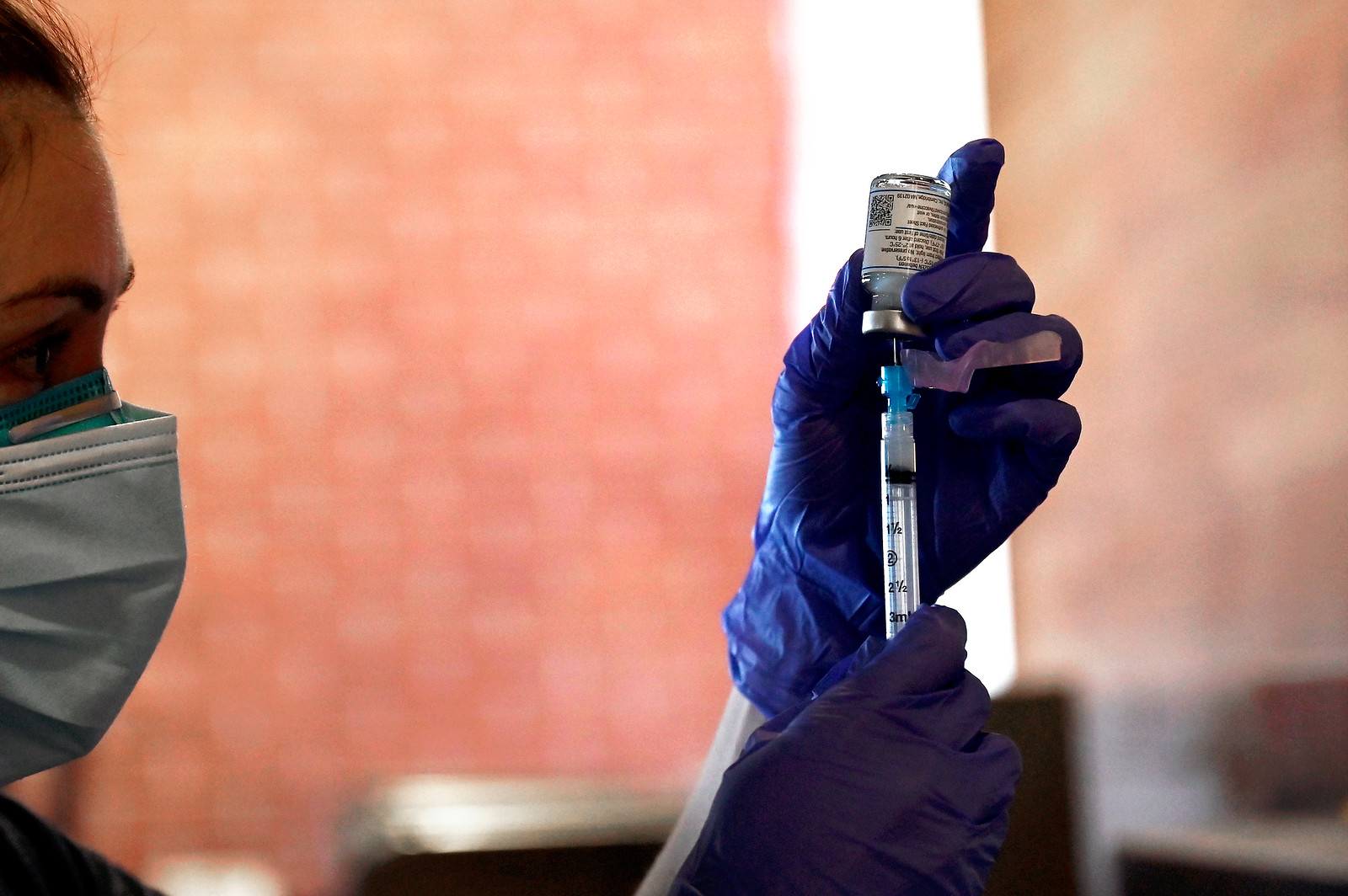mRNA Was Supposed To Stay Ahead Of Variants. Why Aren’t We Using Its Full Potential?

(Joe Amon/Connecticut Public)
Part of the exciting promise of modified mRNA technology that built Moderna and Pfizer’s coronavirus vaccines was an assurance against variants that might one day evade the vaccines’ protection.
If any troublesome mutations arose, researchers said, manufacturers would be able to reprogram the string of genetic code inside the vaccines to counter that.
Manufacturers have indeed created shots updated for the delta variant, says Dr. Dan Barouch, an immunologist at Beth Israel Deaconess Medical Center who worked on the Johnson & Johnson vaccine. Delta has quickly become the dominant strain in the U.S., and it appears to spread even among fully vaccinated people. So, you might think it would make sense to start distributing shots tailored to the delta variant’s genome.
And yet, at the moment, vaccine makers are still cranking out their original formulas for new inoculations and the booster shots that the Biden administration plans to authorize in September.
These vaccines contain a string of genetic letters that shows the body’s cells how to create the spike protein, which the coronavirus uses to attack human cells. The immune system can then build antibodies that can target and neutralize the spike protein. In the original vaccines, this genetic code was developed using the genome from the coronavirus that first sparked the pandemic. Updated vaccines could use the genome from the delta variant, rather than the ancestral coronavirus, and generate antibodies that are theoretically better at fighting delta.
